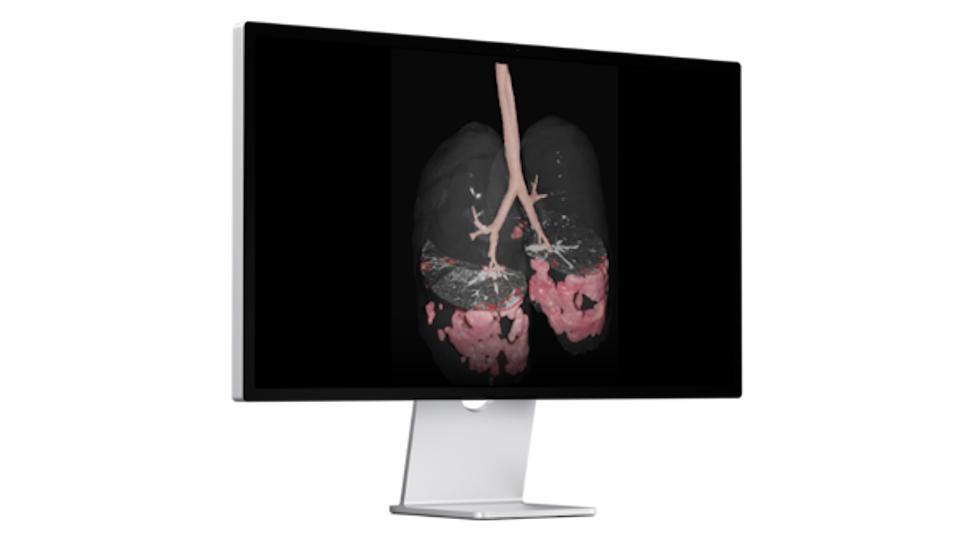Lung disease imaging AI from Brainomix gets FDA nod

Artificial intelligence company Brainomix has claimed FDA approval for e-Lung, which assists in the diagnosis and assessment of patients with interstitial lung diseases (ILDs) from medical images.
Brainomix has built its business on the back of its suite of tools and algorithms for interpreting brain scans and guiding treatment and transfer decisions for stroke patients, but it has been working to expand into new areas.
The FDA approval of e-Lung is the first for the University of Oxford spin-out in lung disease, its next major area of focus along with cancer, and also marks a step up in its presence in the US.
ILDs are a broad category of over 200 lung diseases that can cause scarring (fibrosis) to the lungs and can be life-threatening and irreversible, with prospects for patients generally improving the earlier they are spotted.
e-Lung has been trained using thousands of CT scans to quantify pulmonary fibrosis and other characteristics using proprietary imaging biomarkers and can be used to track disease progress over time, as well as identify patients at risk of progression.
In a recent example, it was used in a phase 2 trial of AstraZeneca’s anti-IL13 antibody tralokinumab, already on the market as Adtralza, involving patients with idiopathic pulmonary fibrosis (IPF).
Using biomarkers including weighted reticulovascular score (WRVS) – which assesses reticular opacities and vascular structures of the lung – e-Lung was able to stratify patients at risk of progression more accurately than standard techniques.
The study built on previously published data showing that WRVS was more strongly associated with transplant-free survival of IPF patients than lung function testing using forced vital capacity (FVC) on its own, and was also able to predict both short- and long-term outcomes of the patients, including lung function decline and survival.
“The preliminary data for e-Lung is impressive and would indicate that we have a promising tool that could help to expedite healthcare delivery and improve clinically meaningful outcomes for patients with lung disease,” said Dr Deji Adegunsoye, scientific director of the ILD programme at University of Chicago Medicine.
New data on e-Lung is scheduled to be presented at the American Thoracic Society (ATS) annual conference in San Diego, which starts today. That includes data from a partnership with Avalyn Pharma, which is developing a new inhaled formulation of pirfenidone called AP01 as a treatment for pulmonary fibrosis.
In 2022, the UK government funded a 12-month study of e-ACT – another Brainomix technology used to interpret CT scans – to look at its potential in diagnosing and tracking lung cancer.












